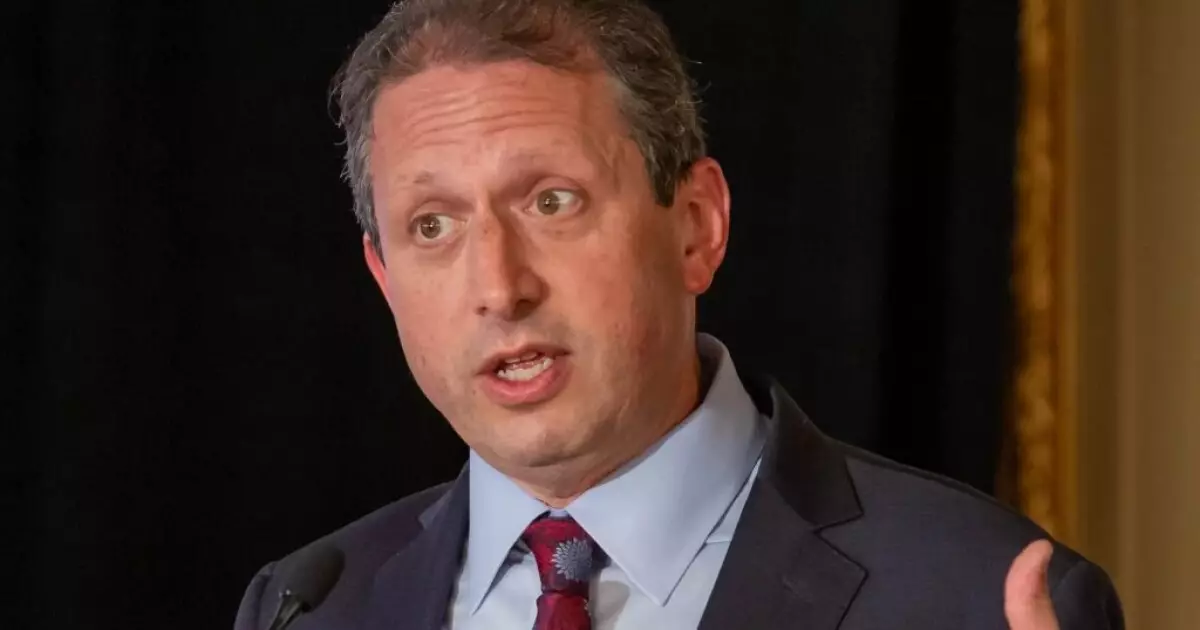In a groundbreaking initiative, New York City Comptroller Brad Lander has publicly endorsed a strategic shift in how the city’s pension funds manage their investments, specifically regarding fossil fuel infrastructure. This decisive movement marks a critical juncture in the financial landscape, positioning these pension funds as pioneers in sustainable investment. With a total asset management portfolio exceeding $285 billion, the New York City Employees’ Retirement System, Teachers’ Retirement System, and Board of Education Retirement System are poised to become the first major pension funds in the country to exclude midstream and downstream fossil fuel assets from their private market investments.
Recognizing the Financial Implications of Climate Risk
During a press conference held on a Tuesday, Lander emphasized the intrinsic relationship between climate risks and financial stability, stating, “Climate risk is financial risk.” His assertion speaks to a broader understanding among investors that the long-term viability of financial portfolios is intricately tied to environmental health. This philosophy urges fund managers to adopt a comprehensive view of their portfolios, focusing on potential future risks stemming from climate change effects. It is essential for governing boards to not only prioritize immediate financial returns but also incorporate the sustainability of their investments into their long-range planning.
The proposal to exclude fossil fuel infrastructure investments is on track for presentation to the respective trustees of the three pension funds in early 2025. Lander’s Bureau of Asset Management plays a pivotal role in this process, as it carries the responsibility for gathering relevant data and conducting extensive research to back the implementation of such policies. The initiative builds on previous actions, notably the 2022 divestment from fossil fuel reserve owners within public equity portfolios. However, the new policy specifically targets private equity and infrastructure investments, which means it will take a more comprehensive stance against harmful fossil fuel projects such as pipelines and liquefied natural gas (LNG) terminals.
The momentum to divest from fossil fuel-centric investments aligns with the more extensive net-zero implementation plans adopted by the funds. Remarkably, the pension funds have committed approximately $11 billion to energy and climate solutions, a number that is nearly three times greater than their historical holdings in fossil fuel reserve companies prior to 2021. This strategic pivot not only demonstrates a willingness to embrace green financial solutions but also showcases a proactive approach in investing in a sustainable future.
Comparative Perspectives: NYC vs. National Trends
Contrasting sharply with the stance taken by certain Republican-ruled states, which have enacted provisions to incentivize fossil fuel investments and penalize non-compliant financiers, New York City is taking the lead in aligning investment strategies with climate objectives. Lander’s firm commitment to sustainable practices positions NYC pension funds as exemplars of responsible investing. While firms elsewhere face political pressures to fund traditional energy sources, New York City’s pension strategy is grounded in a commitment to long-term ecological and economic viability.
As the financial landscape evolves in response to the realities of climate change, New York City’s commitment to excluding fossil fuel investments from its pension portfolios sets a significant precedent. By taking decisive action, these pension funds are not only safeguarding their financial health but also setting a standard that other cities and states may follow. The conversation about risk in investment extends beyond just financial figures; it encompasses ethical considerations, environmental impact, and long-term sustainability. As Lander noted, the city has positioned itself as “a tough partner” for private equity funds, signaling its intent to champion sustainable investment practices. This is a concept that could redefine the future of pension investments, potentially encouraging greater accountability across the investment community.

